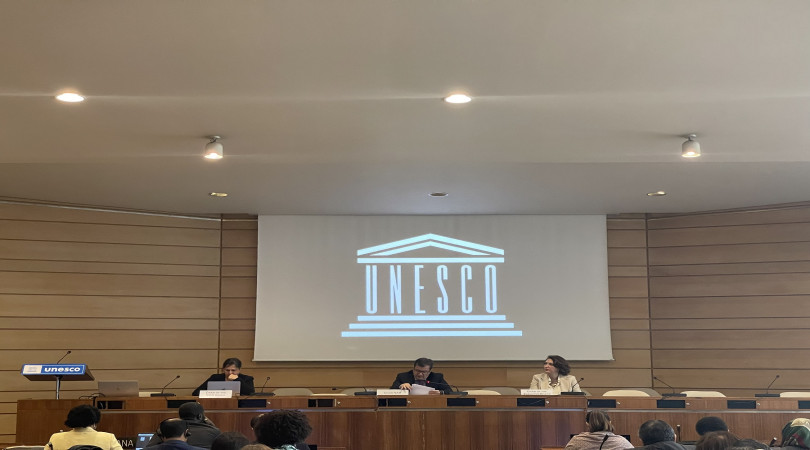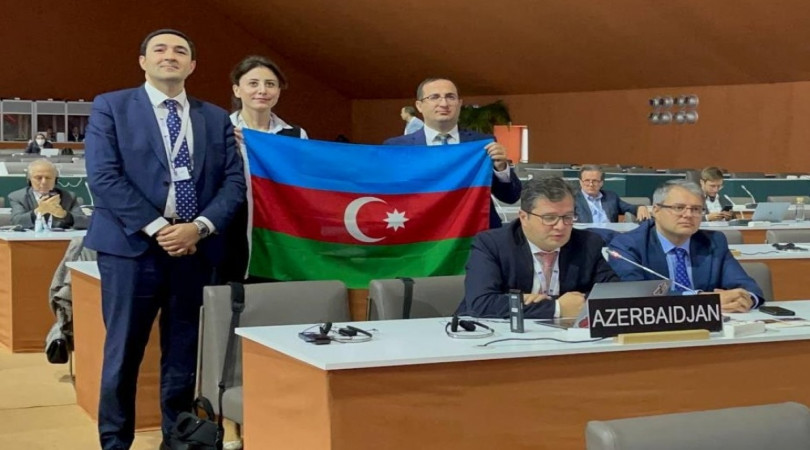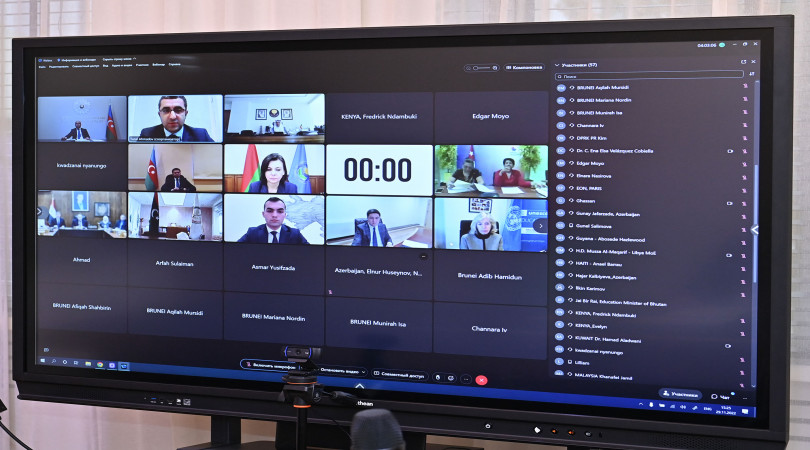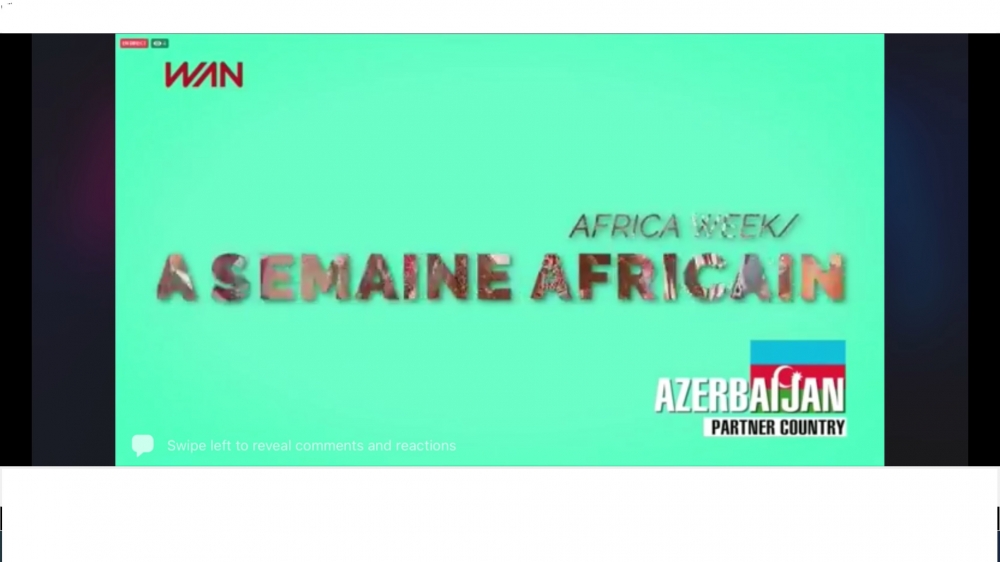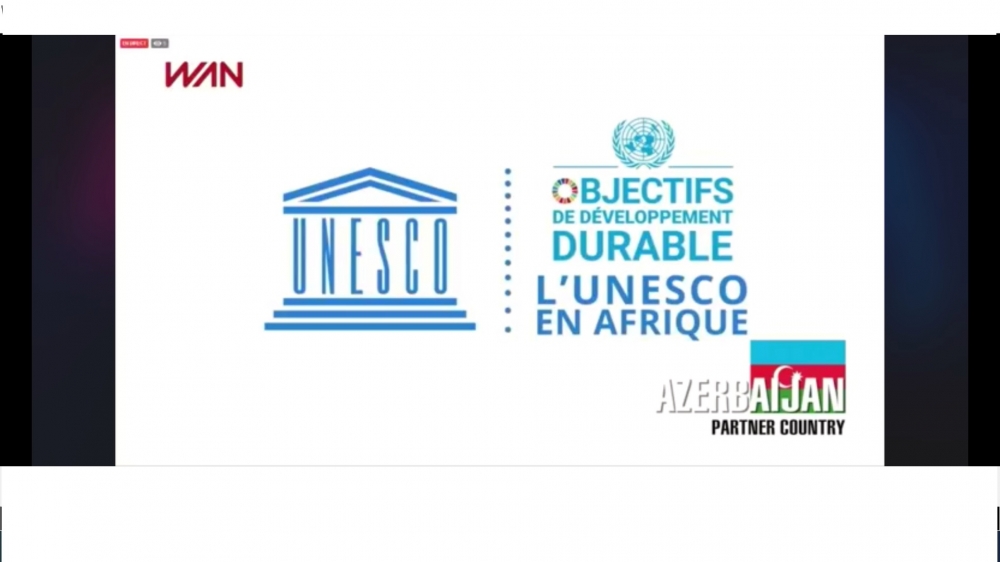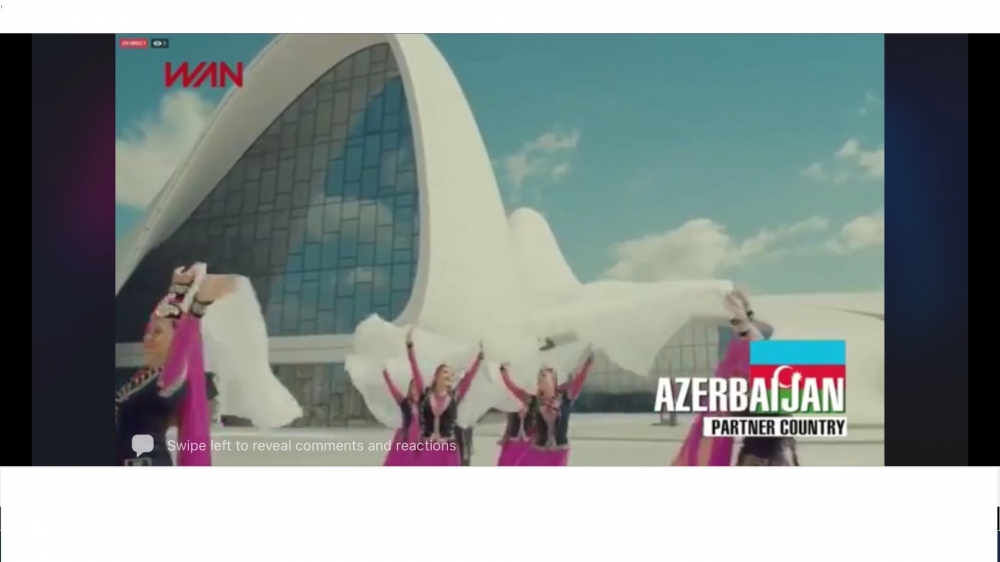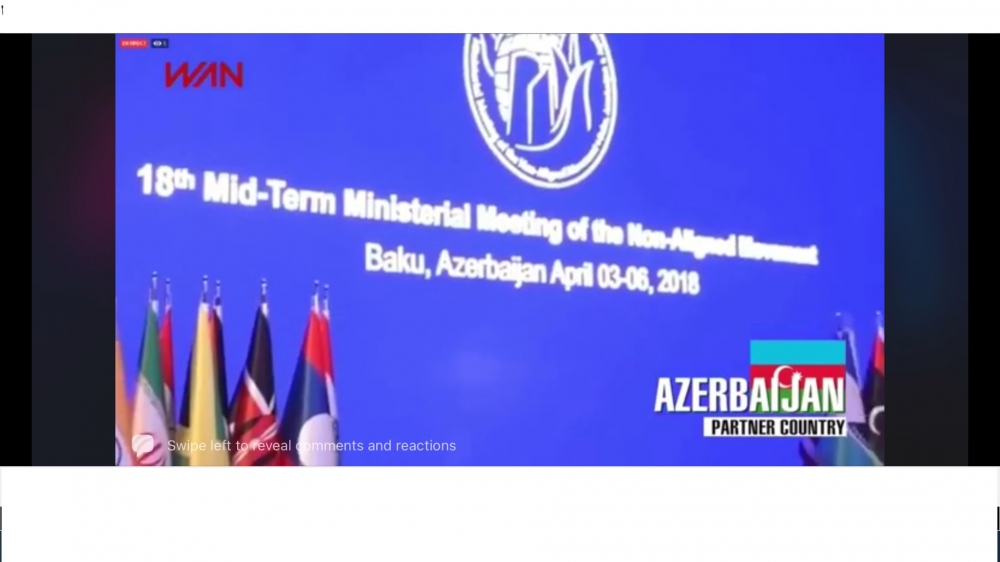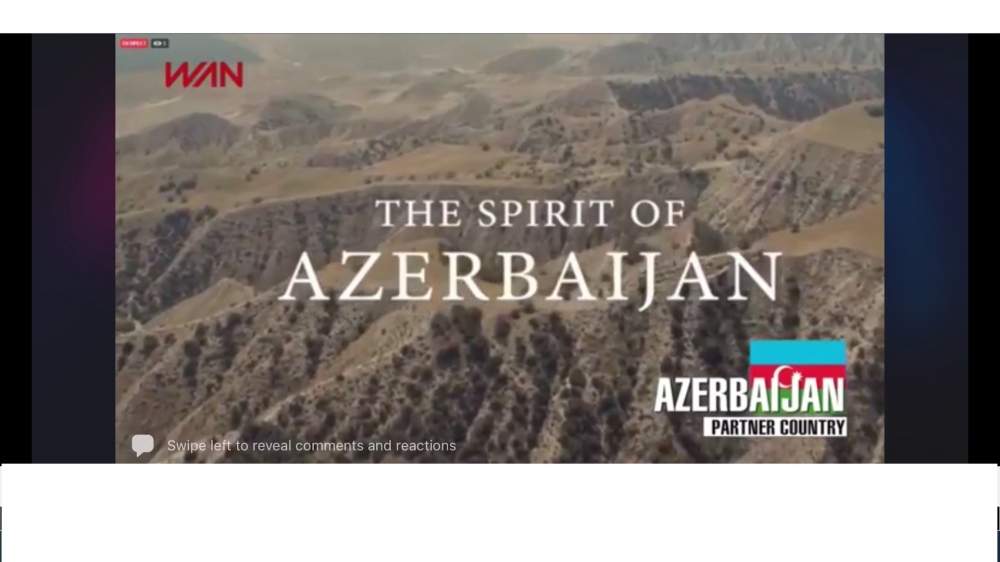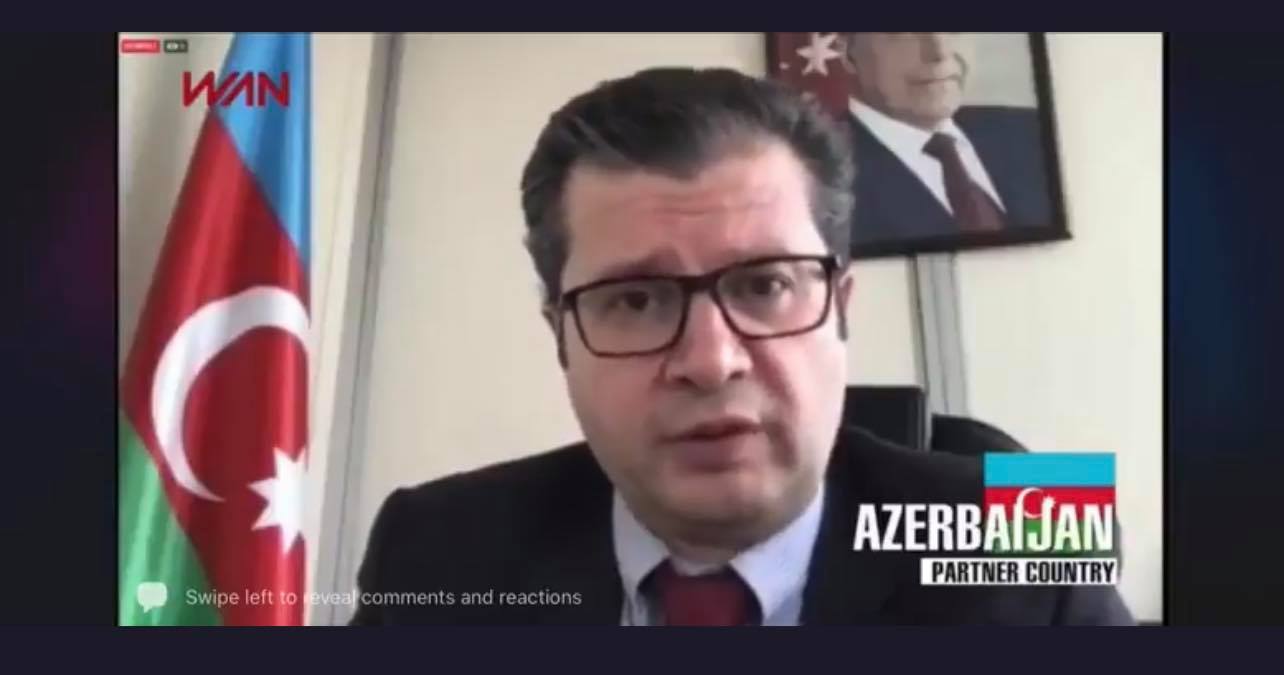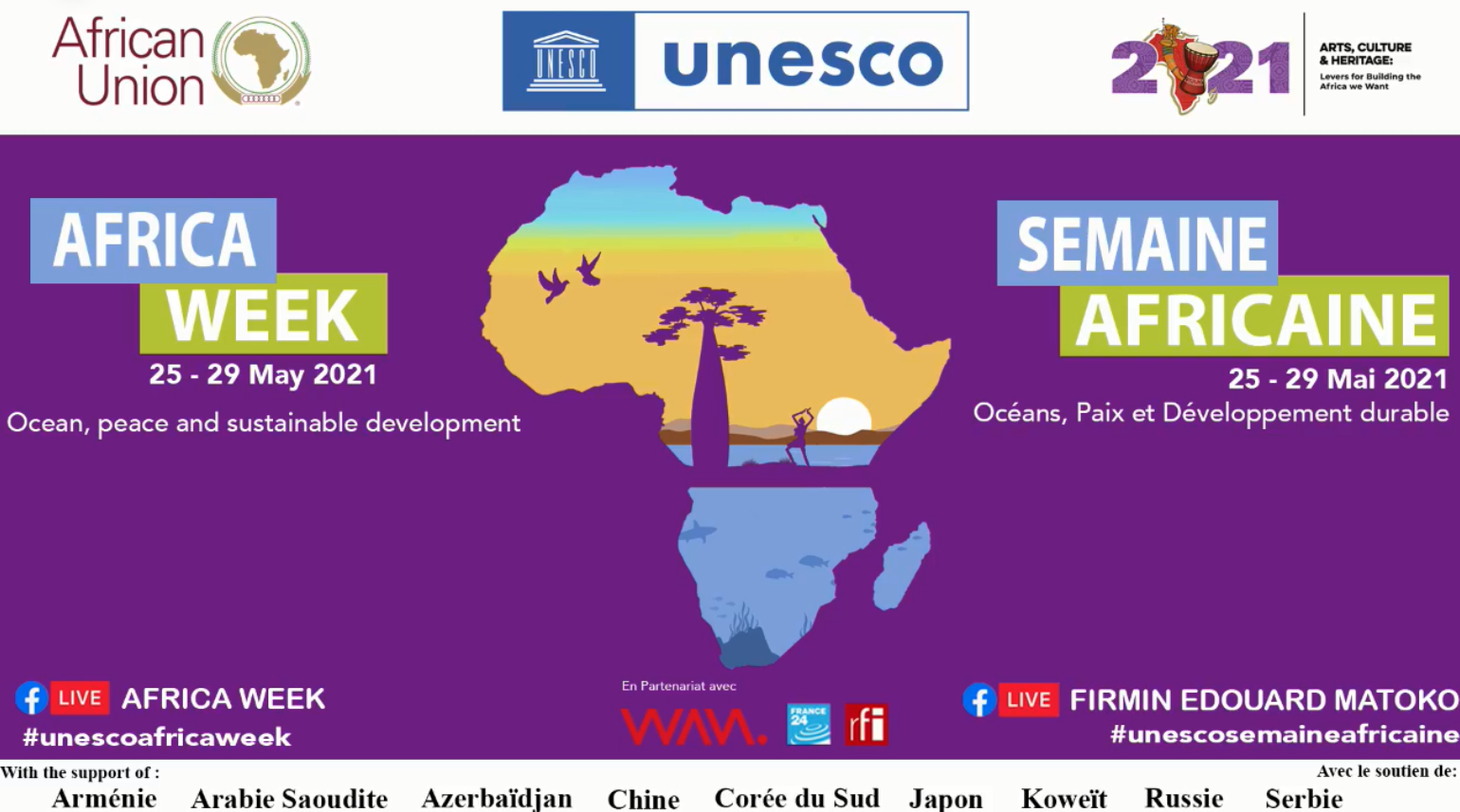Within the framework of "Africa Week" the Azerbaijan's contribution to UNESCO was discussed
The longstanding cooperation and partnership between Africa and Azerbaijan goes all the way back to history. Thousands of Africans graduated from various Azerbaijani Universities, returned back home and served their countries. Since 1960s, Azerbaijan provided the opportunity for young people from African countries to study in Azerbaijan. 15.000 young African specialists educated at various Azerbaijani universities.
Moreover, established in 2014 UNESCO/Azerbaijan Trust Fund financed several projects in the different areas of Africa. Particularly, they were focused on Girls’ Education, gender equity and equality in education in Kenya, Uganda, Tanzania and Liberia.
These views were expressed by the Permanent Delegate of the Republic of Azerbaijan to UNESCO, Ambassador Elman Abdullayev in his speech in the framework of the "Africa Week", organized under the topic "Oceans, Peace and Sustainable Development". He noted that the primary goals of those projects were to promote behavior change through effective delivery of health information at the classroom level, to contribute to government efforts in improving the quality of life and well-being of young girls and women particularly those from hard to reach areas and communities such as pastoralist communities, to develop strategies to deliver and scale-up gender-sensitive teacher training and pedagogies, so as to improve girls' access to, and performance in, primary education, to improve educational quality and increase educational opportunities, especially for girls and women and disadvantaged population groups.
Noting that Azerbaijan has taken over the Non-Aligned Movement in a very critical time for the humanity, the Permanent Delegate said that global emergency caused by COVID-19 necessitated our concerted and effective responses.
He underlined that being aware of it, with the aim to contribute to the global efforts in addressing the unprecedented universal impact of the pandemic, Azerbaijan as an active part of the global family made voluntary financial aid to the "COVID-19 appeal" of World Health Organization.
In addition, it was noted that in order to find out possible ways to provide a prompt, adequate and inclusive assistance to the Member States of the Non-Aligned Movement, Azerbaijan convened a special session of the UN General Assembly, as well as the online summit-level meeting of the NAM contact group in response to COVID-19 on the topic "United against COVID-19" on May 4, 2020.
As a result of this meeting a working group on the response to coronavirus developed a database of humanitarian and medical needs and requirements of NAM Member States in their fight against COVID-19. Today, this database has become a reference point for WHO for identifying the needs of Movement Member States.
The Presidency also raised the issue of disparity in the distribution of vaccines between developing and developed countries at the international level. Surely, recently adopted Human Rights Council Resolution will assist to the facilitation process of vaccines accessibility for all.
As for UNESCO, NAM spares no effort to support the activities of the organization. Final Baku Declaration of the NAM Heads of State and Government of 2019 outlined more than 100 items dedicated to the outstanding issues that African states are facing, other items focused on gender equality, education and other principle areas of the UNESCO's mandate.
“We always stand by the brilliant initiatives, which aim to make our joint endeavors directed to well-being and human satisfaction stronger, more visible, effective and well heard. Because the strength of us is in our solidarity and unity”, – Abdullayev said.
Touching upon the relations between Azerbaijan and Africa in the field of promoting intercultural dialogue, the Permanent Delegate noted that initiated in 2008 the “Baku Process” comprises an open and respectful exchange of views between individuals and groups with different ethnic, cultural, religious and linguistic backgrounds and heritage living on different continents, on the basis of mutual understanding and respect.
Afterwards, the Ambassador talked about the ideas of a Luanda biennale dedicated to the culture of peace in Africa and inspired by African Union’s Charter for African cultural renaissance whose objectives reflect those of UNESCO’s Convention on the Protection and Promotion of the Diversity of Cultural Expressions (2005) which recognizes that creation and access to artistic expressions are fundamental freedoms, and the cultural and creative sector is a catalyst for inclusive economic growth, reduction of inequalities, and achievement of the Sustainable Development Agenda 2030,
He emphasized that it is necessary and reliable to create the peculiar synergy between the two processes Baku Process & Luanda Biennale. Being an instrument for peace, tolerance, coexistence, respect for human rights and the promotion of the identity and cultural diversity of the peoples this synergy could create the stronger dialogue among civilizations, culture of peace and inter-faith dialogue.
“Sustainable development is key to sustaining peace and vice versa. Ensuring lasting peace, prosperity and stability for all, leaving no one behind, is a major objective and responsibility of all of us. Moreover, my country always seeks to strengthen the peace all over the world and to ensure the sustainable development for all, where all means all”, - Ambassador Abdullayev concluded his speech.
During the Ambassador's speech, a video reflecting Azerbaijan, its sights and our country's contribution to African countries was broadcast on television channels in many countries.
It should be noted that the first phase of the "Africa Week" was organized by the Permanent Delegation of the Republic of Gabon to UNESCO with the support of a number of countries, including Azerbaijan on May 24-29, 2021.
UNESCO Director-General Audrey Azoulay, President of the General Conference of UNESCO Altay Jengizer, President of the Executive Board of UNESCO Agapito Mba Mokuy, Chair of the African Group in UNESCO, Permanent Delegate of Namibia Albertus Aochamub, Vice-Chair of the African Group in the Executive Board, Permanent Delegate of Ethiopia Henok Teferra attended the event.
The second phase is scheduled for November this year on the margins of the 41st Session of the UNESCO General Conference on the topic "Art, Culture, Heritage: The Way to Build the Africa We Want".
Thus, this first stage provided a real opportunity to hear the views of experts in the field of ocean sciences, technologies and innovations, to exchange updated views to evaluate existing African initiatives, and to develop new perspectives for current activities and sustainable development.

